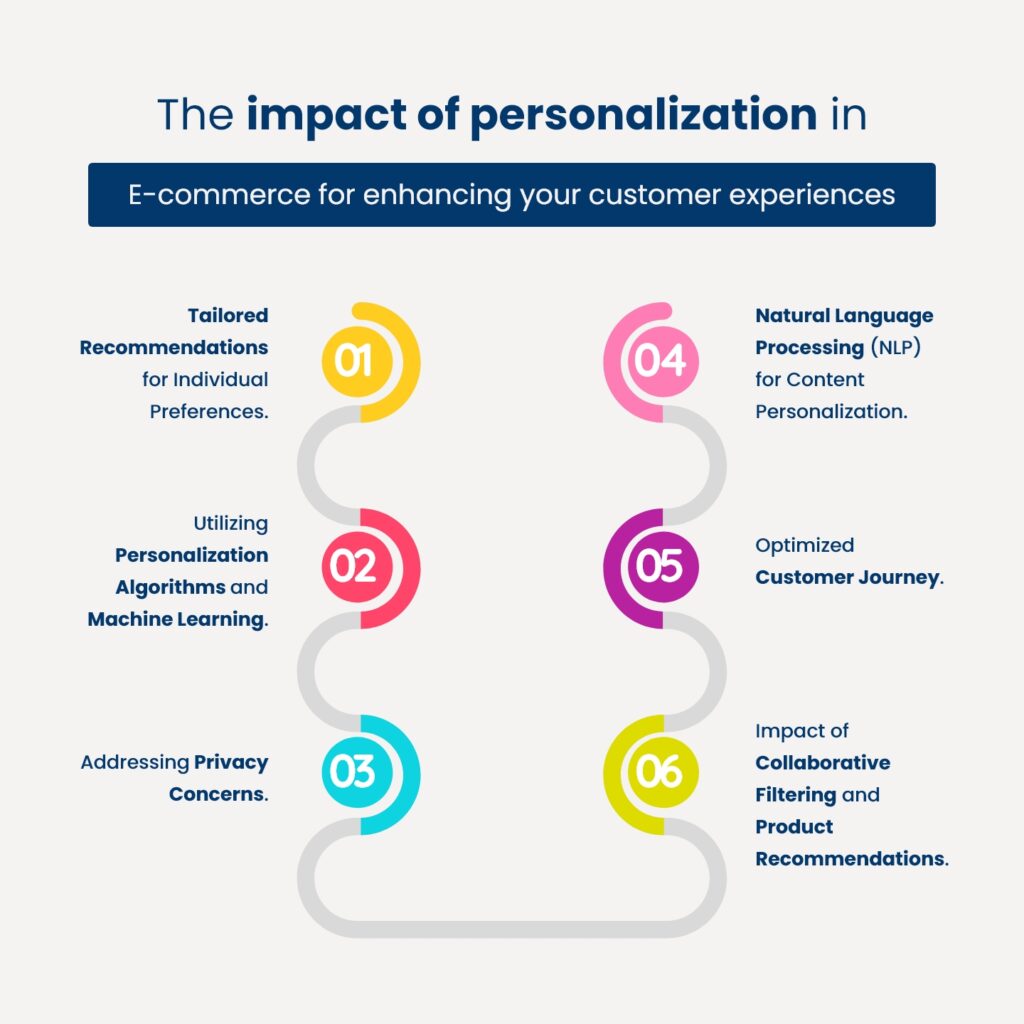Businesses are increasingly turning to personalization in E-commerce to revolutionize the way they interact with customers. The Temkin Group found that companies that earn $1 billion annually can expect to earn, on average, an additional $700 million within 3 years of investing in customer experience. For SaaS companies in particular, they can expect to increase revenue by $1 billion. Hence, investing in customer experience (CX) initiatives has the potential to double your revenue. This tailored approach not only caters to individual preferences but also significantly enhances the overall customer experience. In this article, we delve into the multifaceted impact of personalization in E-commerce, exploring how this technology is reshaping the digital marketplace and impacting CX.
Understanding Personalization in E-commerce
Personalization in E-commerce refers to the customization of the online shopping experience based on individual user behavior, preferences, and demographics. Customer Experience (CX) influences on-the-spot purchasing too, as 49% of buyers have made impulse purchases after receiving a more personalized experience. So, beyond traditional one-size-fits-all approaches, employing advanced algorithms and data analytics provide users with highly relevant content, product recommendations, and promotional offers effectively.
Importantly, at the heart of effective personalization lies predictive modeling. By harnessing advanced analytics and machine learning algorithms, businesses can predict customer behavior and preferences with remarkable accuracy. Predictive modeling enables E-commerce platforms to anticipate what customers might be interested in based on their past behaviors and interactions.

Tailored Recommendations for Individual Preferences
A good interaction keeps you happy and satisfied, while a poor interaction could lead to you stopping doing business with that company again. And it’s because of these extremes that 88% of companies now prioritize customer experience in their contact centers.
One of the primary benefits of personalization in E-commerce lies in its ability to deliver personalized product recommendations. Advanced machine learning algorithms analyze a customer’s browsing and purchasing history, enabling e-commerce platforms to suggest products that align with their unique preferences. For instance, if a customer frequently purchases running shoes, a personalized recommendation system may showcase the latest running gear or accessories. This level of customization not only saves customers time but also increases the likelihood of successful conversions.
Also, beyond product recommendations, personalization in E-commerce extends to personalized content delivery. Websites can dynamically adjust the content displayed to users based on their interests, location, and previous interactions. This could include tailored homepage banners, personalized email newsletters, and even customized landing pages.
Utilizing Personalization Algorithms and Machine Learning
Today, 94% of businesses say that e-commerce personalization is critical to their present and future success. At the core of E-commerce personalization lies the deployment of intricate algorithms that harness the power of machine learning. These algorithms analyze vast datasets, encompassing user behaviors, preferences, and historical interactions. By recurrently iterating over this data, machine learning models discern patterns and correlations, enabling the generation of highly accurate predictions.
Impact of Collaborative Filtering and Product Recommendations
Collaborative filtering is a pivotal technique in E-commerce personalization, categorizing users based on their historical behaviors and preferences. Recommender systems leverage collaborative filtering to identify similarities between users and generate product recommendations. For instance, while 91% of consumers say that they’re more likely to shop with brands that remember their preferences and use them to provide relevant offers and recommendations, 74% of Gen Zers show an interest in personalized products. These recommendations are not merely static; they dynamically evolve as users engage with the platform, ensuring real-time relevance.
Talking of collaborative filtering, recommender systems play a pivotal role in personalization strategies. These intelligent algorithms analyze vast amounts of data to provide customers with tailored product recommendations. Whether through collaborative filtering or content-based filtering, recommender systems leverage the power of algorithms to understand and predict user preferences.
Natural Language Processing (NLP) for Content Personalization
Enhancing customer experiences extends beyond product recommendations to include personalized content delivery. Natural Language Processing (NLP) algorithms analyze textual data, enabling E-commerce platforms to understand and categorize user-generated content, reviews, and queries. This information is then utilized to dynamically adjust content, ensuring users encounter information that aligns with their interests. Through the lens of personalization in E-commerce, NLP emerges as a crucial impact, showcasing how technical advancements contribute to a more immersive and relevant online experience.
Optimized Customer Journey
Personalization in E-commerce extends beyond the virtual storefront, encompassing the entire customer journey. From the moment a user lands on the website to the completion of a purchase, personalized experiences can streamline and optimize each step. Behind every digital interaction, there’s a human being with unique preferences and motivations. Personalization in E-commerce thrives on understanding these nuances through the lens of customer insights. Analyzing data points such as purchase history, feedback, and social media engagement provides businesses with a comprehensive understanding of their customers.
For instance, personalized shopping carts can display items left in a user’s cart during a previous visit, and dynamic pricing algorithms can offer personalized discounts based on individual shopping behavior. These tactics not only improve the overall shopping experience but also contribute to higher conversion rates
Addressing Privacy Concerns
While personalization in E-commerce offers substantial benefits, it is essential to address the growing concerns related to user privacy. Businesses must strike a balance between leveraging customer data to provide personalized experiences and respecting user privacy rights. By incorporating transparency in data collection practices and allowing users to control their privacy settings, businesses can build trust with their customers. A commitment to ethical data usage further reinforces the positive impact of personalization in E-commerce on customer experiences
Takeaway
By leveraging advanced algorithms and data analytics, businesses can create a tailored and engaging shopping experience that resonates with individual customers. From personalized product recommendations to customized content delivery, the use of personalization in E-commerce has the potential to revolutionize the way online businesses connect with their audience. Embracing this technology is not just a trend but a strategic imperative for those seeking to thrive in the competitive digital marketplace, where customer experience is paramount.


